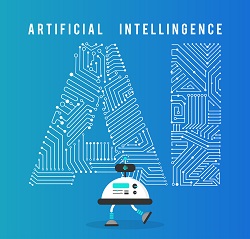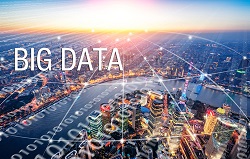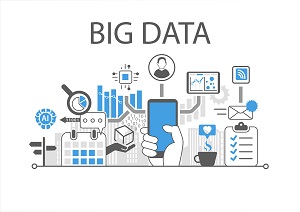In this contributed article, Diederik Verkest, Ph.D. from imec, points out that to make predictions, AI relies on the processing of large amounts of data, a process that takes a lot of energy. Imec develops solutions to drastically reduce that energy consumption. A new chip, in which these calculations are performed directly in the memory by means of analogue technology, is a major breakthrough in this field.
How New Hardware Can Drastically Reduce the Power Consumption of Artificial Intelligence
Why AI Is the Answer to Oil Spills
In this contributed article, tech blogger Caleb Danziger discusses how AI may be the solution to preventing and responding to disasters like oil spills. AI can help prevent these disasters and improve responses if they do occur.
What You Should Know About Big Data and Energy Consumption in 2020
In this contributed article, front end developer Gary Stevens suggests that the future of big data in the energy industry is bright. Reducing energy consumption is a win-win situation for both companies and consumers, lowering costs as well as limiting environmental impact.
Big Data and Its Role in the Waste and Recycling Industry
In this contributed article, freelance human Avery Phillips believes that the advent of big data is making the whole process of recycling and waste management much easier. In fact, big data has impacted many industrial and scientific realms in ways that benefit the environment. For example, it is regularly used to help scientists and land managers gain a better understanding of our changing environment and ways to combat climate change.
Optimizing Fuel Pricing in a Convenience Retail Environment with AI and Machine Learning
In this special guest feature, Niels Skov, SVP, PDI Fuel Pricing Solutions, outlines how fuel pricing is a complex business for convenience retailers. Using advanced digital capabilities like AI and machine learning to get fuel pricing right can have a significant business impact far beyond an operator’s raw margins on gasoline or diesel.
GE Introduces New Analytics to Advance Electric Grid Operations
GE (NYSE: GE) announced the availability of three new grid analytics that combine domain expertise with artificial intelligence (AI) and machine learning (ML) to tackle pressing challenges in electric grid operations. The new portfolio uses data from across transmission and distribution networks to help achieve goals for operational efficiency.
Wind Energy Data? … Hack It!
In this contributed article, Emilien Simonot, Renewable Energies Technology Officer for InnoEnergy, discusses how the wind industry has a long history of innovation, yet rather than having reached its peak, innovation is needed now more than ever. Exploiting data, and building digitalisation into the wind industry’s very business models and technical specifications are key to continued innovation. This article explores the road ahead seeking to understand how data will tie technical and business model innovation together and uses examples of how wind businesses could better connect with customers, improve and innovate new business models, and build bigger and better plants.
Fundamentals in the Oil Field Matter Even More with Big Data
In this contributed article, Shiva Rajagopalan, President and CEO of Seven Lakes Technologies, discusses how big data is being used and what the opportunities are in the billion dollar oil & gas industry. The objective for success is straightforward for the oil and gas operations: bring the usefulness of data out of the office and make it all about the field.
Opportunities for Big Data to Improve Energy Usage Across Industries
In this contributed article, technology writer and blogger Kayla Matthews discusses how a digital transformation is what the energy industry is currently seeing, which will provide an unprecedented amount of information and intel. This shift can, presumably, be used to assess and manage energy usage as well as the operation of large-scale energy providers.
Big Data and Analytics Play an Important Role in the Energy Industry
In this contributed article, Ritesh Mehta, Senior Technical Account Manager for TatvaSoft Australia, discusses how the energy industry is using big data technology to lower energy consumption, look for new sources of renewable energy and boost energy efficiency – are all integral big data goals to protect the environment as well as to sustain economic growth.











